Directory
- Share
Sally Gras
- Alumni
- Australia
- 2002 PhD Physics
- Trinity College

Sally Gras
- Alumni
- Australia
- 2002 PhD Physics
- Trinity College
Elizabeth Gray
- Alumni
- United States
- 2005 MSc Pathology
- Churchill College

Elizabeth Gray
- Alumni
- United States
- 2005 MSc Pathology
- Churchill College
I will be working towards a MSc in Pathology with Dr. Nick Coleman. My project involves modeling HPV(Human Papillomavirus)-mediated cervical neoplasia. Specifically, I am interested in those cases which are driven by non-integrated (episomal) HPV. This work will prepare me for a career as a professor and research scientist. In this field, I hope to increase our understanding of cancer and inspire young biologists to pursue this intriguing field.
Links
Simon Gray
- Alumni
- Canada
- 2008 MPhil Advanced Chemical Engineering
- Pembroke College
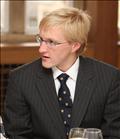
Simon Gray
- Alumni
- Canada
- 2008 MPhil Advanced Chemical Engineering
- Pembroke College
I am a native of South Africa, but was raised in Canada and the United States. My interests in biology, chemistry, and engineering led me to the University of Maryland, Baltimore County, where I earned a bachelor of science in Chemical Engineering with a focus on Biochemical Engineering. Since completing the MPhil in Advanced Chemical Engineering at Cambridge, I have continued my education at the Yale University School of Medicine where I am pursuing an MD/PhD in the Medical Scientist Training Program. I hope to translate my medical training into a research career that applies my engineering skills to clinically relevant problems.
Jennifer Grayson
- Alumni
- United States
- 2011 MPhil Asian & Middle Eastern Studies
- Selwyn College
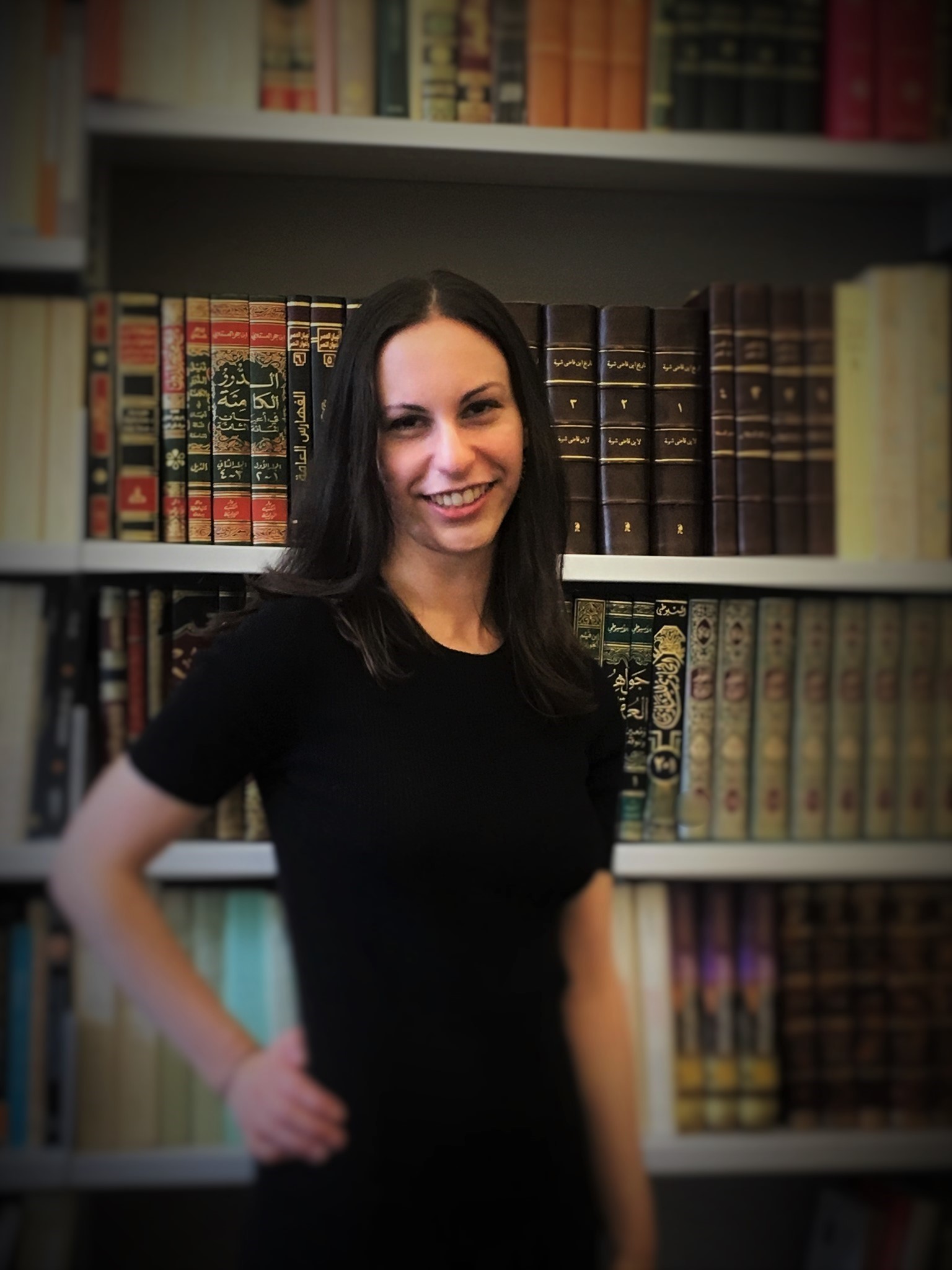
Jennifer Grayson
- Alumni
- United States
- 2011 MPhil Asian & Middle Eastern Studies
- Selwyn College
Daniel Greco
- Alumni
- United States
- 2006 MPhil Philosophy
- Darwin College

Daniel Greco
- Alumni
- United States
- 2006 MPhil Philosophy
- Darwin College
Alastair Green
- Alumni
- United States
- 2005 MPhil Economics
- Pembroke College

Alastair Green
- Alumni
- United States
- 2005 MPhil Economics
- Pembroke College
In the future, I hope to work in development projects for communities in Muslim Africa. As an undergraduate, I studied development primarily from social and humanitarian perspectives, and I hope that the Cambridge MPhil will help me to better understand development from the point of view of economics. After leaving Cambridge, I plan on becoming involved in development efforts through either the private sector or an international aid agency.
Ariana Green
- Alumni
- United States
- 2007 MPhil Social and Political Science
- Darwin College
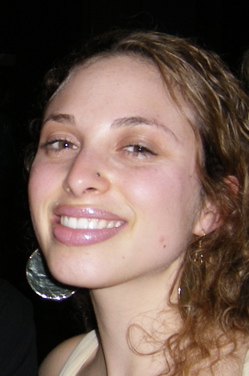
Ariana Green
- Alumni
- United States
- 2007 MPhil Social and Political Science
- Darwin College
At Cambridge I read for an MPhil in Social & Political Sciences, Modern Society and Global Transformations. My dissertation examined how women respond to genetic information and what this suggests about appropriate policy related to genetic testing. Before and after my year as a Gates Scholar, I worked as a reporter -- in Puerto Rico, New York, London, and New England. I wrote regularly for The New York Times and other publications. I spent 2006-7 on a Fulbright Scholarship in London, then later received a JD from Berkeley Law School in California. I currently work as an attorney in New York City at Cooley LLP, where I represent start-up and technology companies, counseling on corporate matters from initial incorporation to exits to IPOs (and many things in between). Please get in touch if you have a new (or not-so-new) company!
David Green
- Alumni
- United States
- 2001 PhD Criminology
- St John's College

David Green
- Alumni
- United States
- 2001 PhD Criminology
- St John's College
Kathryn Greenberg
- Alumni
- United States
- 2009 MPhil Physics
- Churchill College

Kathryn Greenberg
- Alumni
- United States
- 2009 MPhil Physics
- Churchill College
I graduated last May from Mount Holyoke College where I majored in physics. I have a deep passion for optoelectronics research and am currently pursuing a MPhil in Physics. A significant amount of research focusing on light-emitting diodes (LEDs) with polymer semiconductors has taken place recently. My research focuses on creating more efficient organic LEDs. I am working on both the fabrication of polymer LEDs as well as the testing of such devices using various optical techniques.
Daniel Greenfield
- Alumni
- Australia
- 2005 PhD Computer Science
- Trinity Hall

Daniel Greenfield
- Alumni
- Australia
- 2005 PhD Computer Science
- Trinity Hall
(Update: I am now CEO of PetaGene. We tackle challenges in Personalised Medicine, making unwieldy genomic data from sequencers smaller, better and faster, to reduce costs, improve analysis and speed up collaboration.) My PhD research developed models for the physical locality of networks. Locality is fundamentally important for the performance of future computer systems with thousands of processors on a chip, but not much is fundamentally known about it. What is very exciting is that in collaborations with the Brain Mapping Institute, we've also found the theory can explain some mysteries of mammalian neuronal networks and we believe it may help to explain other natural phenomena where physical position matters such as social, epidemic, financial, and traffic networks.
William Greenleaf
- Alumni
- United States
- 2002 Diploma Computer Science
- Trinity College

William Greenleaf
- Alumni
- United States
- 2002 Diploma Computer Science
- Trinity College
Alison Greggor
- Alumni
- United States
- 2012 PhD Experimental Psychology
- King's College
Alison Greggor
- Alumni
- United States
- 2012 PhD Experimental Psychology
- King's College
During my time at Cambridge, I researched how populations of corvids (birds in the crow family) respond with learning to human-induced changes in the environment. My current work applies my background in animal learning to help conserve critically endangered species. Specifically, I contribute to conservation breeding and species' translocations programs by helping build evidence-based approaches for recovery. More broadly I am interested in how areas of animal cognition and behaviour can be utilized in conservation contexts, and have been championing the integration of these fields.
Ronja Griep
- Alumni
- Germany
- 2020 PhD Philosophy
- Emmanuel College

Ronja Griep
- Alumni
- Germany
- 2020 PhD Philosophy
- Emmanuel College
I studied Philosophy, Politics and Economics at the University of Warwick before coming to Cambridge to study for an MPhil in Philosophy. I am interested in political and feminist philosophy. During my master's degree, I have written about climate change duties, social housing and the implications of hate speech for equal citizenship.
My doctoral research engages with the phenomenon of menstrual shame. I offer a philosophical analysis of the connection between gender and shame, and argue that menstrual shaming is a distinct injustice. I also look at the potential of menstrual tracking apps for empowering women.
I am incredibly grateful for the support a Gates Cambridge Scholarship offers me - from the opportunity to conduct research with fantastic academics and peers, to the opportunity to connect with a network of scholars who have years of experience in making the world a better place for everyone.
Previous Education
University of Cambridge Philosophy 2020
University of Warwick PPE 2019
Links
Alexandra Grieve
- Alumni
- South Africa
- 2018 PhD Film and Screen Studies
- Magdalene College
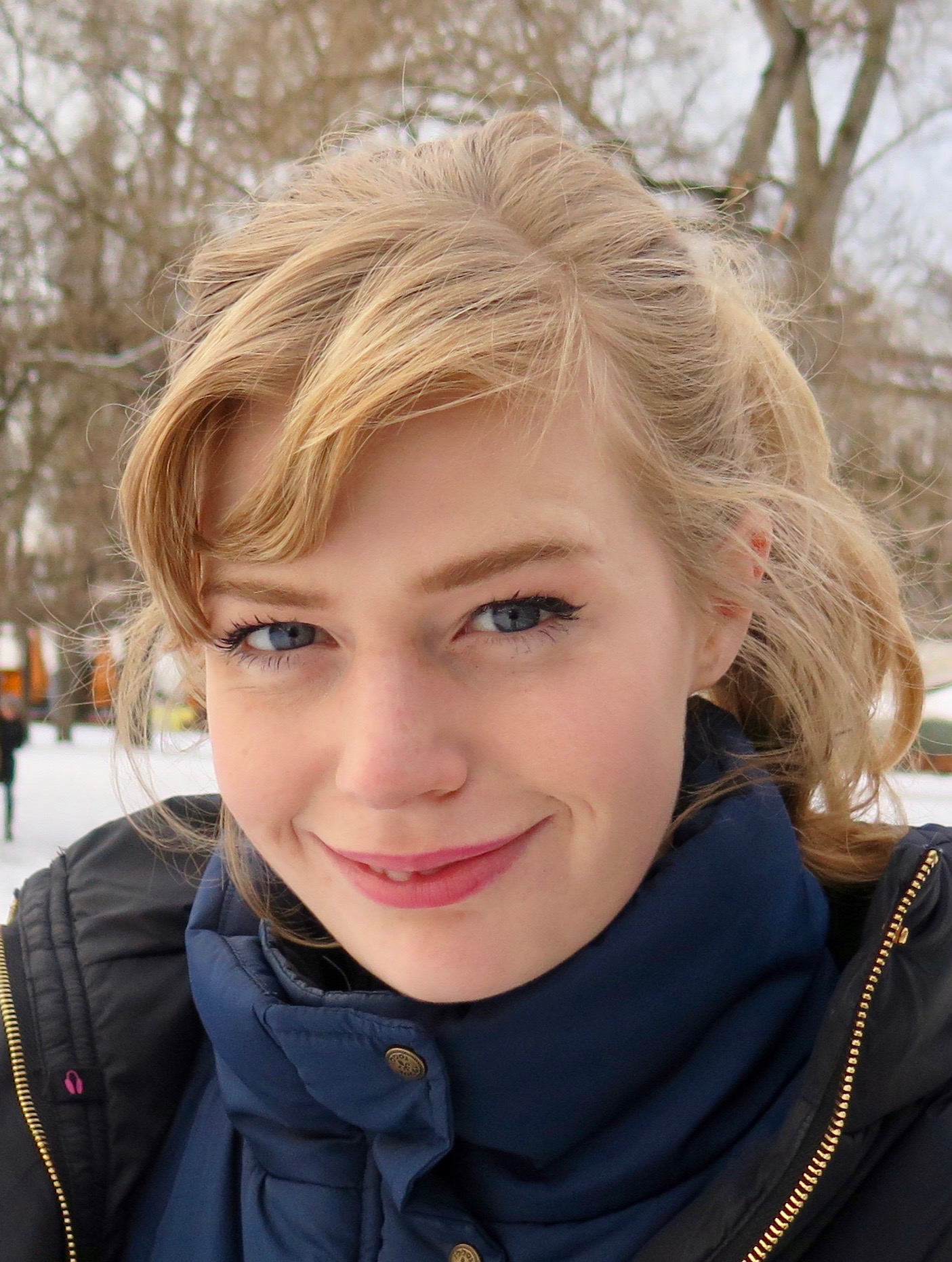
Alexandra Grieve
- Alumni
- South Africa
- 2018 PhD Film and Screen Studies
- Magdalene College
During my undergraduate studies at the University of Cape Town, I specialized in Film Studies and History, the former of which is my principal passion, and the latter has been a keen interest since childhood. A key concern guiding my own filmmaking efforts, as well as my own academic research, is the question of how women filmmakers might begin to re-appropriate a technology that has historically excluded them. I am particularly interested in women’s filmmaking, material culture and African history, which I am currently exploring in Masters’ research at the University of Cambridge. In my PhD research, I aim to establish costume and material culture as an effective lens through which to re-evaluate postcolonial cinema and geopolitics, and, furthermore, to combat the marginalization of African women filmmakers in contemporary film studies. My future aspiration is to contribute to a transnational community of film exhibition and curatorship. I am thrilled to be a part of the Gates Cambridge initiative, and hope that my work will encourage unique, creative approaches to cultural studies both within and beyond the Global South.
Previous Education
University of Cape Town
University of Cambridge
Melinda Griffiths
- Alumni
- South Africa
- 2005 MPhil BioScience Enterprise
- Wolfson College

Melinda Griffiths
- Alumni
- South Africa
- 2005 MPhil BioScience Enterprise
- Wolfson College
I am from Cape Town, South Africa and completed my honours degree in Cell Biology at the University of Cape Town. Looking to apply my molecular biology background in the Biotechnology industry, I decided that the BioScience Enterprise course at Cambridge would provide an excellent practical training at the interface of the science and business worlds. My future plans are to return to South Africa in order to study further and hopefully one day start my own biotech company.
Alexandra Grigore
- Alumni
- Romania
- 2012 PhD Nanotechnology
- St Edmund's College
Alexandra Grigore
- Alumni
- Romania
- 2012 PhD Nanotechnology
- St Edmund's College
I was born in Constanta, a town near the Black Sea in Romania. I graduated simultaneously in Chemical Engineering and Business Administration in Bucharest and I am currently enrolled in the international MSc. of Advanced Materials and Processes in Erlangen, Germany. Besides my studies I conducted two research projects and two internships in fields ranging from nanotechnology, biomaterials, chemistry and biophysics. I am inclined towards applying my knowledge for practical purposes to create devices that will improve human life. This year I will start my Phd. in the Nano Science & Technology Doctoral Training Centre in Cambridge. I am very excited to apply my knowledge, exploit my curiosity and improve my skill skills in an interdisciplinary environment in the field of nanosciences. My dream is to lead my own research group, working in collaboration with companies and hospitals to develop lab-on-a-chip devices for low cost diagnosis and tissue engineering applications.
Dylan Griswold
- Alumni
- United States
- 2019 PhD Clinical Neurosciences
- St John's College
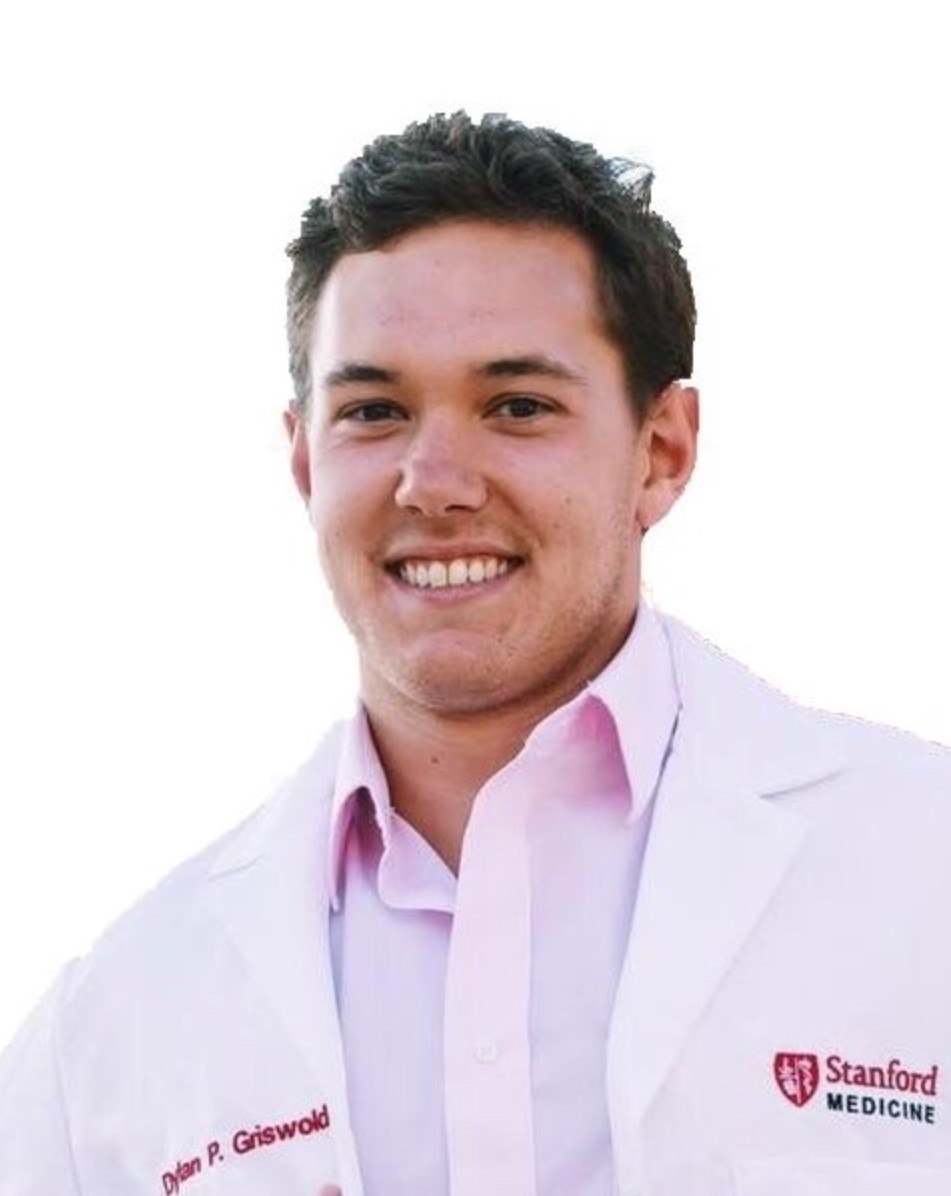
Dylan Griswold
- Alumni
- United States
- 2019 PhD Clinical Neurosciences
- St John's College
I’ve wanted to become a doctor since third grade. Although I was pre-med at Williams, I was also playing baseball, and my aspirations to continue playing after graduation began to take priority. I went to San Francisco the summer after my sophomore year in preparation for a professional tryout, but I tore a ligament in my elbow, requiring two surgeries. Unable to pitch, I began looking for volunteer work. A mentor pointed me to an AIDS hospice home operated by Mother Teresa’s order of nuns. There, I learned how to care for patients, my Catholic faith informing my love for the one who lay beside me. The following summer, I went to Haiti, where I was struck by the almost non-existent access to neurosurgical care. After spending the following year in the neurosurgery lab at UCSF, my desire to become a neurosurgeon was born. I matriculated to Stanford for medical school and developed an interest in connecting clinical practice with research and policy, leading to summer research at WHO in 2017. This past summer, at Cambridge, my team focused on surgical management of neurotrauma in low-resource settings. I am tremendously grateful for the opportunity to continue working with the global neurotrauma team at Cambridge to develop best-practice guidelines for neurotrauma in low-resource settings. As an MD, PhD candidate, I hope to become an academic leader capable of managing complex neurosurgical disease in addition to affecting policy to improve universal access to safe and affordable surgical care. Finally, I give thanks to God, abandoning myself to His plan for my life.
Previous Education
Stanford University Doctor of Medicine Neurosurgery 2021
Williams College B.A. Chemistry 2015
Benjamin Gross
- Alumni
- United States
- 2006 MPhil Criminology
- King's College

Benjamin Gross
- Alumni
- United States
- 2006 MPhil Criminology
- King's College
I'll be focusing on penal theory, paying particular attention to the moral status of revenge in justifications of punishment. I'm also interested in the mechanisms (often extra-legal) of punishment within prisons themselves. Also, I'm hoping to look into the scope of rational choice theory with respect to moral actors.








